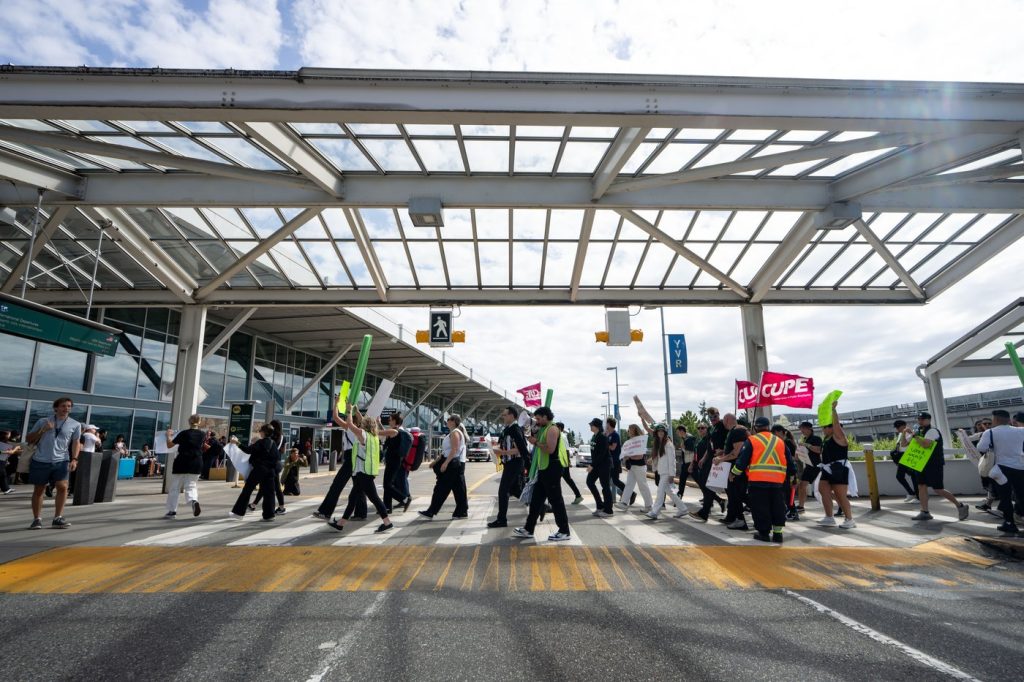As travelers brace for another turbulent day, the labor dispute between Air Canada and the Canadian Union of Public Employees (CUPE) continues to escalate. Flight attendants, represented by CUPE, remain on the picket lines amidst a battle against a federal return-to-work order issued by the Canada Industrial Relations Board. This order mandated that over 10,000 flight attendants return to work by 2 p.m. ET on August 17, 2025. Following this directive, CUPE filed a challenge in Federal Court, indicating their commitment to resisting the order. The situation has attracted significant criticism from labor organizations across Canada, with the Canadian Labour Congress asserting their support for the striking flight attendants during an emergency meeting on Sunday evening.
In addition to the ongoing labor conflict, significant political activity is unfolding in Canada today, particularly in Alberta. Voters are participating in a byelection for the rural riding of Battle River-Crowfoot, which was vacated by Conservative MP Damien Kurek following the spring election. The byelection is generating unusual national attention, as it has been characterized by an unusually large number of candidates—more than 200—many of whom are affiliated with a protest movement known as the Longest Ballot Committee. This record number of candidates requires voters to manually write in their preferred choice on a modified ballot, reflecting the unique circumstances of this electoral contest. Notably, the Conservative Party leader, Pierre Poilievre, who previously lost his Ottawa-area seat in the spring election, is widely expected to secure a victory in this traditionally safe Conservative riding.
In a separate development of interest, Prime Minister Mark Carney is set to meet with Ontario Premier Doug Ford today in Ottawa. While a federal official indicated that no significant announcements are anticipated from the meeting, discussions are expected to focus on pressing topics such as affordability, housing, and crime. This informal gathering comes as Premier Ford participates in the Association of Municipalities of Ontario conference, running through Wednesday, providing both leaders an opportunity to align on important matters ahead of upcoming legislative sessions.
On the international front, concerns over landmine usage in the context of European security have been raised by Gary Toombs, a senior explosive disposal technician. He argues that relying on landmines is an ineffective and outdated approach that would lead to further suffering and hunger. Advocates for anti-landmine measures are urging Canada to intensify its efforts to convince European nations to remain committed to the 1997 Ottawa Treaty, which Canada was instrumental in brokering to ban anti-personnel mines globally. However, recent announcements from six countries bordering Russia—including Ukraine, Finland, Poland, Estonia, Latvia, and Lithuania—indicate their possible intention to withdraw from the treaty, citing the need to address threats posed by Russia.
Additionally, Alberta's government is moving towards sustainability initiatives by planning to power several of its correctional facilities with solar energy. The project aims to install solar panels at five of its ten jails, with expected annual energy cost savings of approximately $1 million. The installations are projected to offset around 80% of the energy consumption at each facility. The preliminary budget for this initiative ranges from $10 million to $50 million, with specific financial details to be finalized as the project develops. While the specific locations of the chosen facilities have not been disclosed, it has been confirmed that two of the jails are situated in the Edmonton area, while three are located near Calgary.











